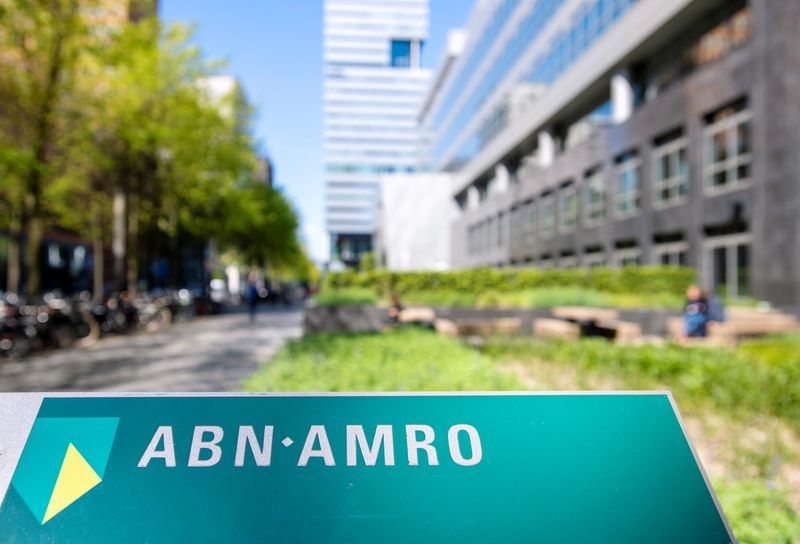By Bart H. Meijer
AMSTERDAM (Reuters) - ABN Amro (AS:ABNd) is to end all of its trade and commodity financing operations in a shift that will see 800 jobs go at the Dutch bank as it calls time after a string of losses in those businesses.
In a massive overhaul of its activities, ABN Amro said on Wednesday its corporate bank will retreat to northwest European markets, exiting the United States, Asia, Australia and Brazil, except for clearing operations.
The restructuring, will affect around 45% of the corporate bank's client loans, worth 18 billion euros ($21 billion) and follows several attempts to increase the profitability and reduce risks at ABN's corporate bank after difficulties in the offshore energy markets saddled it with losses on its loans.
"We will serve clients in segments where we can achieve scale, so we will focus on the Netherlands and Northwest Europe, where we will invest and grow," Chief Executive Robert Swaak said.
Several other European banks have been rethinking their trade and commodity finance operations, including Natixis (PA:CNAT) and BNP Paribas (PA:BNPP), hit by losses in energy trading and a drive to focus on greener finance initiatives.
BALLOONING IMPAIRMENTS
Write-offs at ABN's corporate bank ballooned to 1.4 billion euros in the first half of 2020, up from 128 million euros a year before, as loans to the oil and gas sector soured along with the economic outlook.
Loan-loss provisions at the unit jumped to 591 million euros in the second quarter alone, due to the low oil price and a "potential fraud case" in Germany.
In the first quarter, ABN had taken over 800 million euros in loan-loss provisions at the corporate bank, mainly due to problems at two large clients.
One of those involved a $200 million loss on clearing activities, as a U.S. hedge fund failed to meet its margin requirements.
The bank on Wednesday said its impairments led to an overall net loss of 5 million euros in the second quarter.
This beat analysts' expectations for a loss of 46 million euros, after a 693 million euro profit in the same period a year ago.
Since its bailout by the Dutch state in 2008, ABN has already refocused much of its activities on the Dutch market, cutting thousands of jobs in the process.
The bank was re-privatised in a 2015 initial public offering at 17.75 euros per share. The Dutch state still owns a 56% stake.

ABN Amro shares opened 3.3% higher at 8.36 euros in early trade, after having lost around half their value since the start of the year.